The Blue Economy is a fast-growing movement of entrepreneurs, scientists, and impact leaders reimagining how we use the ocean’s resources—responsibly, regeneratively, and equitably.
Covering a remarkable 70% of our planet, the oceans are not only vast but also vital, playing a fundamental role in regulating Earth's climate and generating the very oxygen we breathe.
Beyond their environmental significance, they directly support the livelihoods of over three billion people, particularly within coastal and island communities that rely heavily on marine resources.
Economically, the ocean's value is substantial, estimated by the OECD to be between $3 and $6 trillion annually, with projections indicating a potential doubling in size by 2030.
Furthermore, the ocean acts as a significant natural carbon sink, absorbing approximately 25% of global CO₂ emissions each year, underscoring its crucial contribution to climate resilience.
From carbon-capturing kelp farms to lab-grown seafood and ocean-cleaning robots, here are some Blue Economy startups changing the world from sea to shore.
Switch Maritime
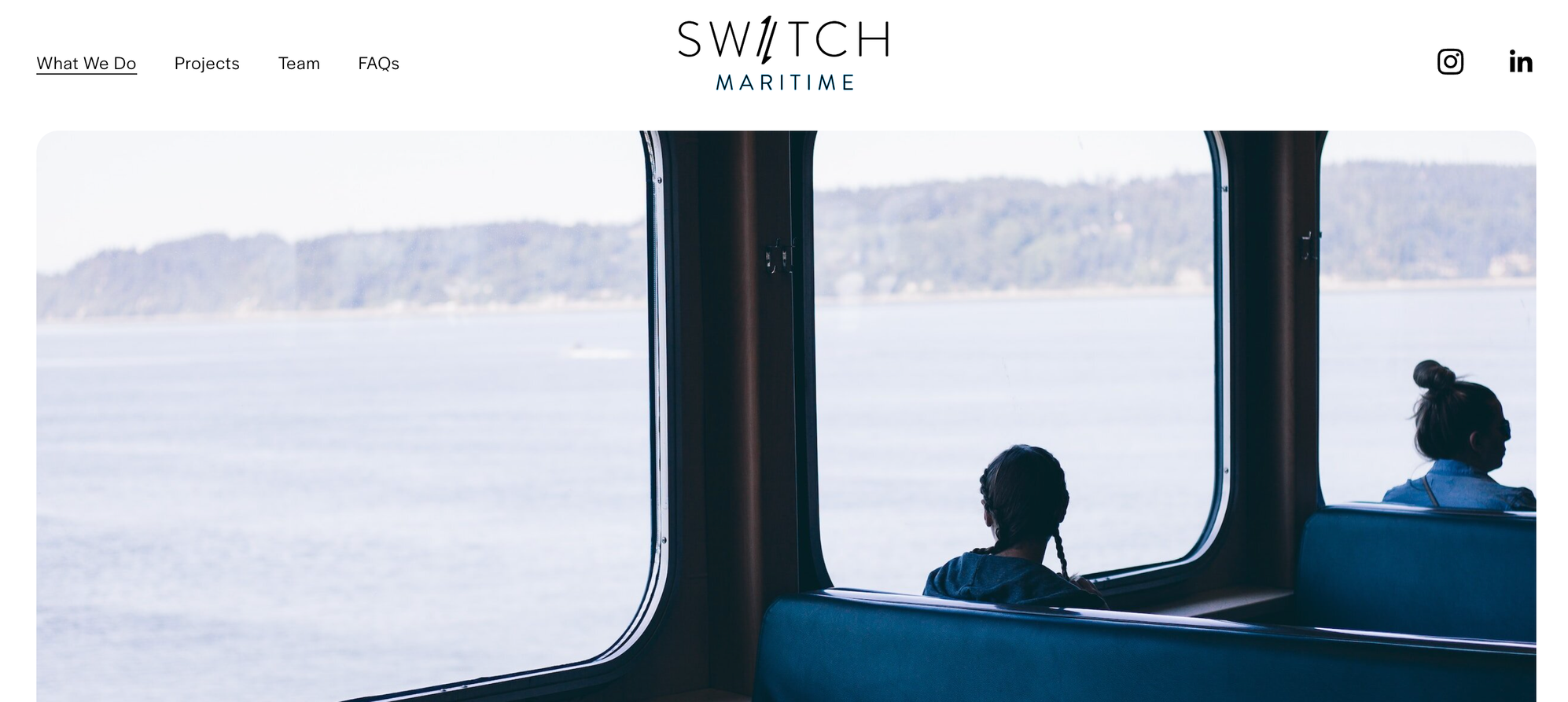
Switch Maritime is building the future of clean passenger ferries with its zero-emission hydrogen fuel cell vessels.
The company’s flagship vessel, Sea Change, is the first hydrogen-powered ferry in the U.S.—a major step toward decarbonizing short-haul maritime transit.
By targeting commuter and tourism routes, Switch Maritime is creating scalable alternatives to diesel-powered ferries, helping reduce port emissions, improve air quality, and modernize coastal infrastructure.
What They Do:
- Design and build hydrogen-powered passenger ferries
- Operate Sea Change, the U.S.’s first commercial hydrogen ferry
- Provide zero-emission transit options for urban and coastal communities
Coral Vita
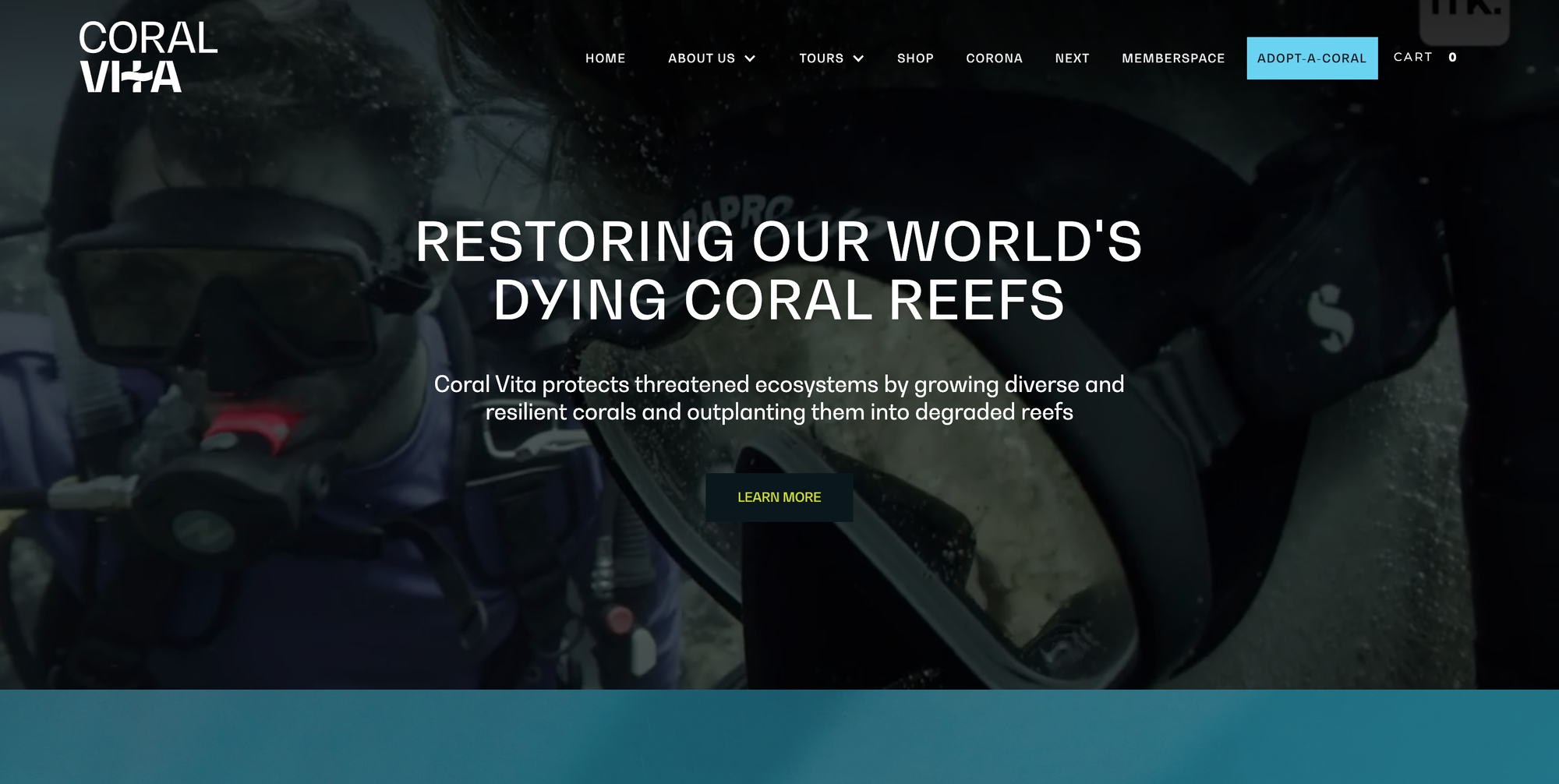
Coral Vita grows resilient coral on land and replants it into degraded reefs—restoring marine biodiversity up to 50x faster than traditional methods. Their approach brings hope to dying reef ecosystems.
What They Do:
- Use microfragmentation to accelerate coral growth
- Breed climate-resilient coral species
- Partner with local communities for restoration
Minesto
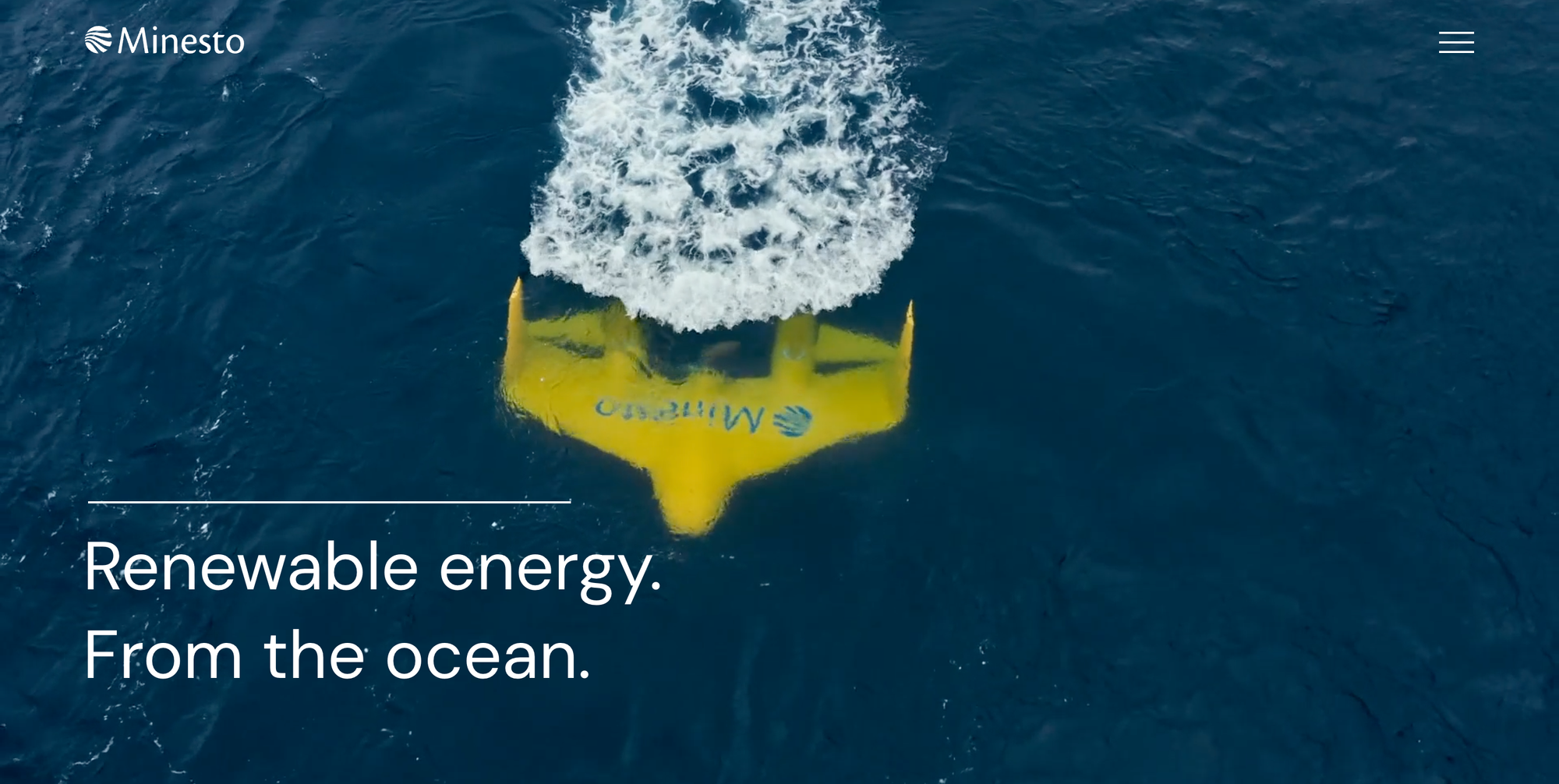
Minesto is the company behind Deep Green—a revolutionary subsea kite technology that generates electricity from low-flow ocean and tidal currents. Unlike traditional tidal turbines, Minesto’s lightweight kites can operate in areas with slower currents, unlocking vast untapped marine energy potential.
What They Do:
- Develop Deep Green subsea kite systems
- Harness slow-moving tidal and ocean currents
- Enable reliable, predictable marine energy production
Amogy
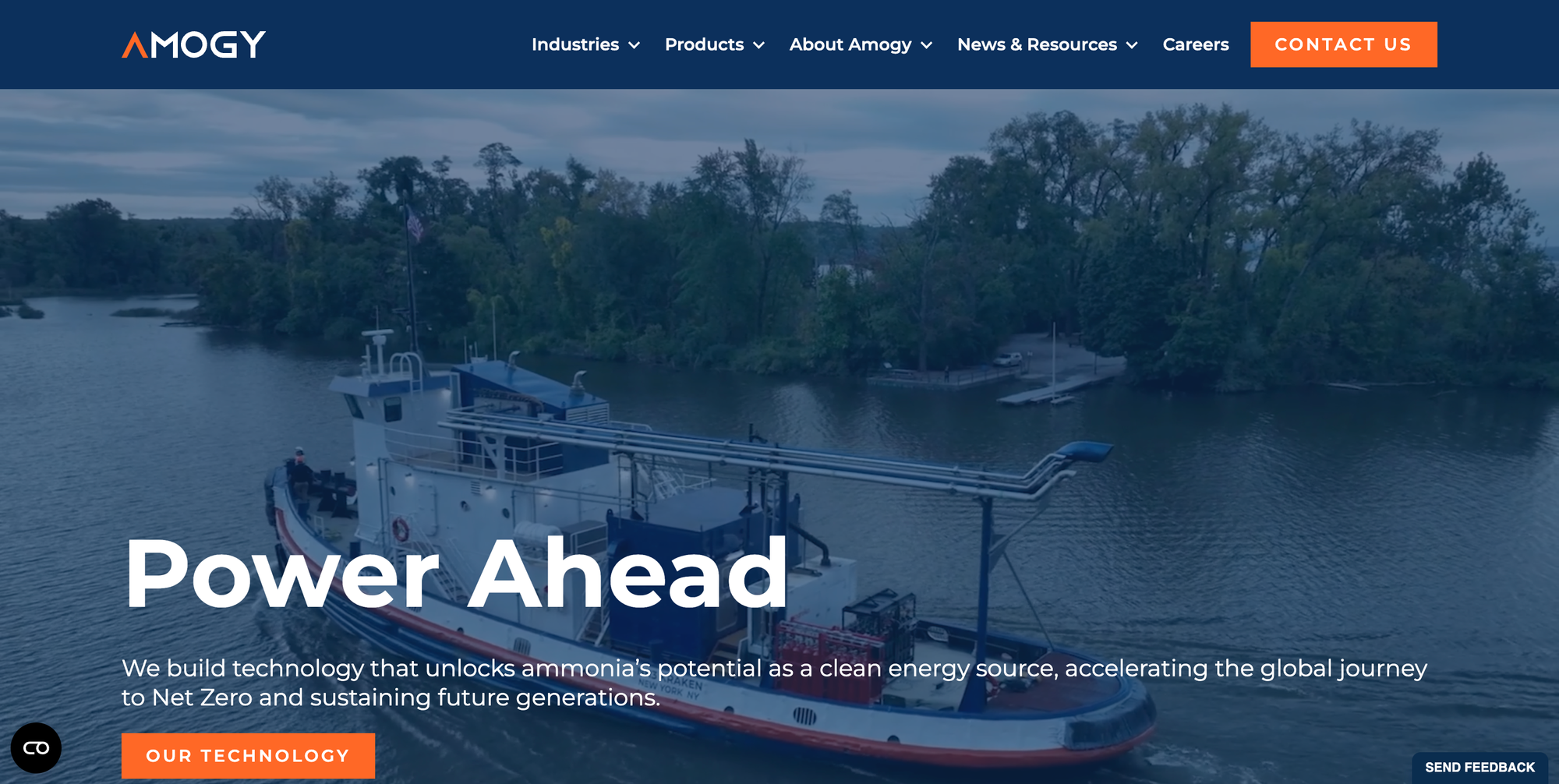
Amogy is a U.S.-based startup pioneering ammonia-to-power systems for maritime shipping. Their technology uses ammonia as a clean energy carrier, delivering high energy density without carbon emissions. By enabling ships to run on ammonia instead of fossil fuels, Amogy is tackling one of the hardest-to-decarbonize sectors in transportation.
What They Do:
- Develop ammonia-powered fuel cell systems for ships
- Enable zero-emission maritime logistics
- Reduce reliance on fossil fuels in global shipping
Desolenator
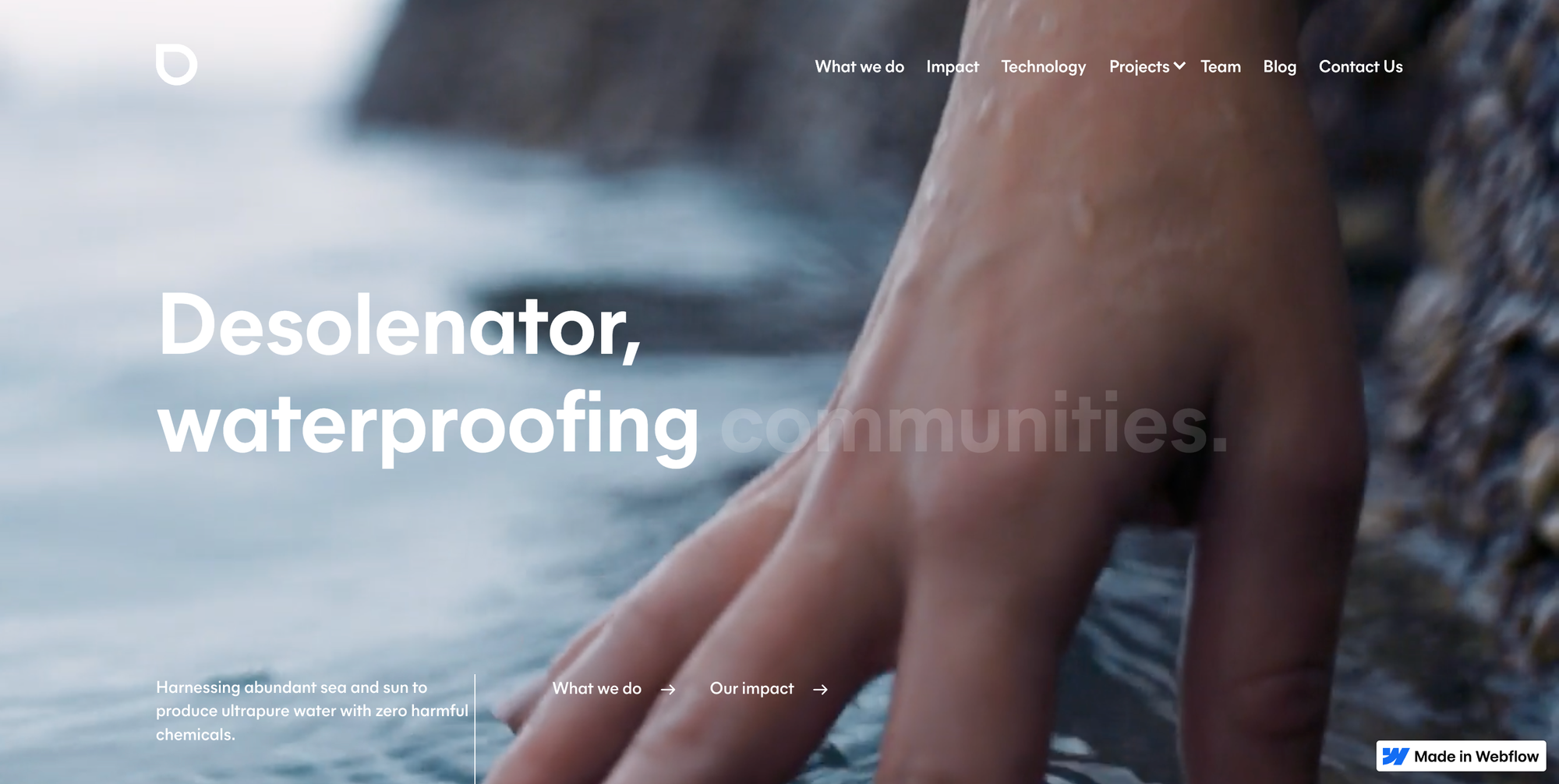
Desolenator provides solar-powered desalination that turns seawater into clean, chemical-free drinking water—without using filters or fossil fuels. It’s a powerful solution for water-scarce communities.
What They Do:
- Off-grid water purification using solar energy
- Zero-waste and chemical-free desalination
- Carbon-negative clean water access
e1 Marine
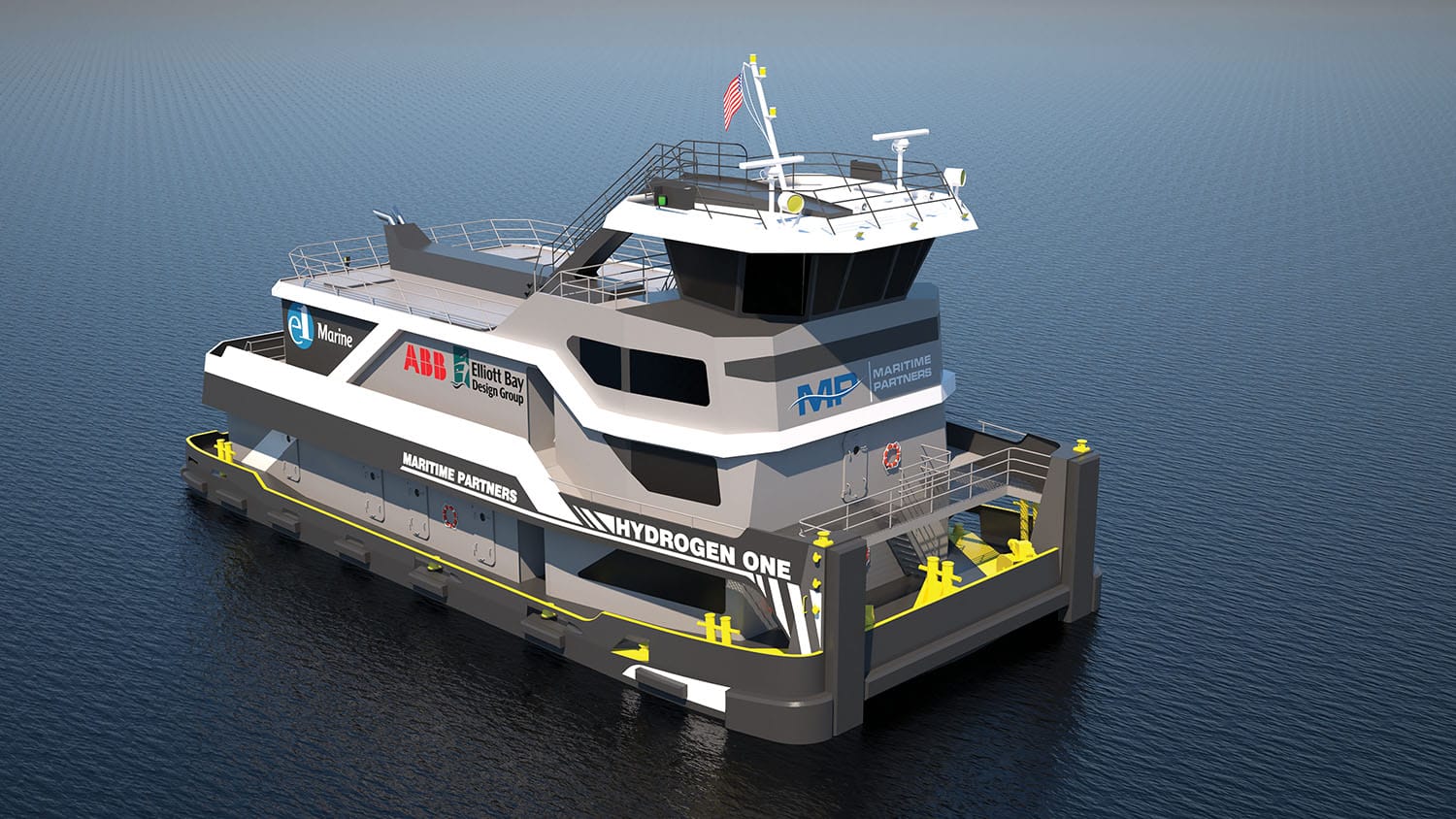
e1 Marine is leading the way in clean maritime propulsion through its methanol-to-hydrogen generation technology. By converting methanol into hydrogen onboard vessels, e1 Marine eliminates the need for pressurized hydrogen storage, offering a safer and more scalable solution for the maritime industry’s decarbonization.
A flagship example of their innovation is the MV Hydrogen One—the world’s first methanol-to-hydrogen fuel cell towboat. Set to launch with the Maritime Partners fleet in 2025, the vessel will be:
- 🌱 IMO 2030 compliant
- 🚢 Aligned with USCG Subchapter M requirements
- ⚡ Capable of traveling 550 miles on a single refuel
What They Do:
- Develop onboard hydrogen generation systems using methanol
- Enable low-emission and zero-emission vessel operations
- Support a scalable path toward decarbonizing inland and coastal fleets
Notpla
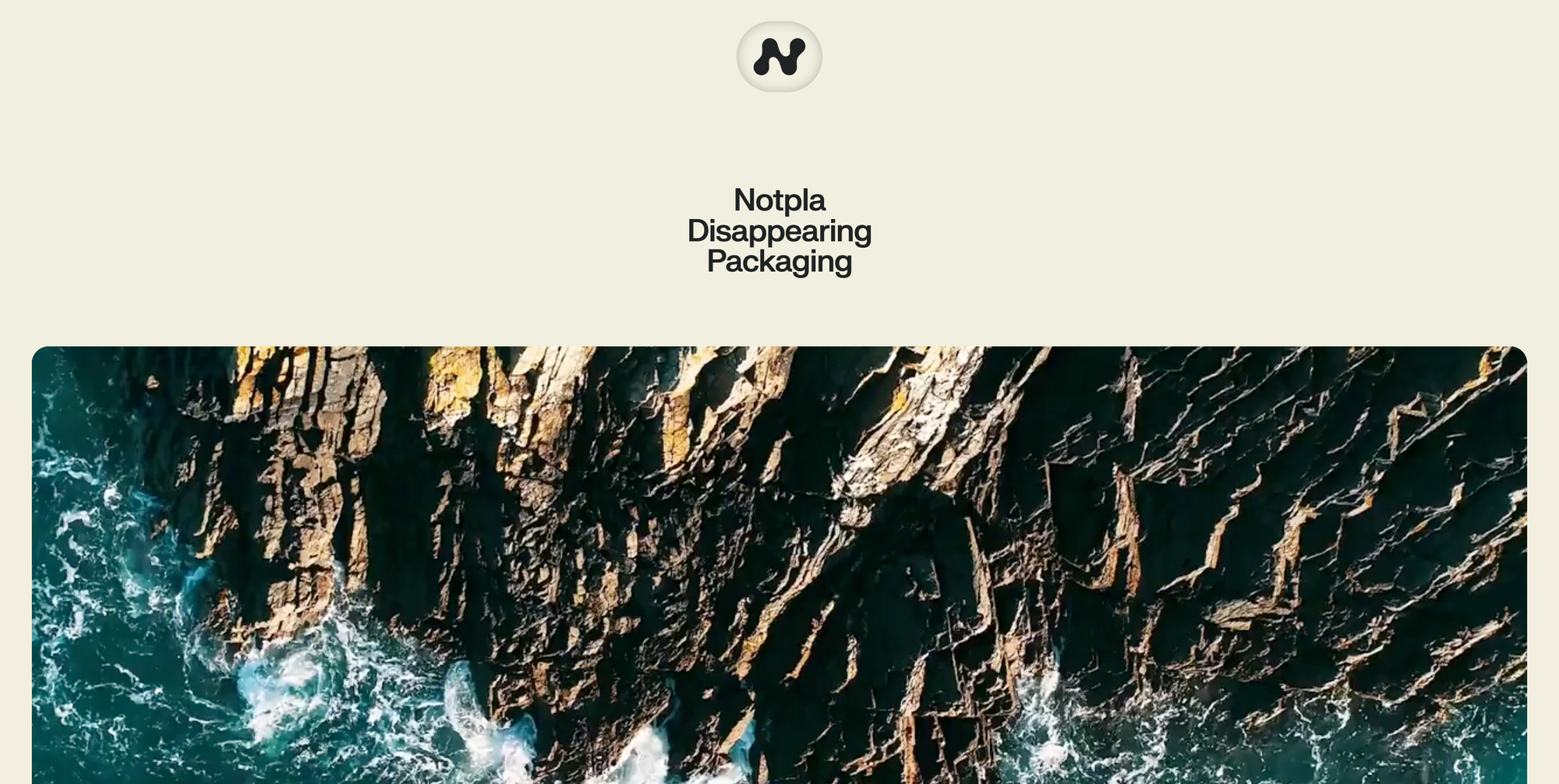
Notpla (short for “Not Plastic”) creates biodegradable packaging made from seaweed and plants. Their material naturally decomposes, making it a plastic-free solution for food delivery and beyond.
What They Do:
- Seaweed-based film and coatings for packaging
- Fully biodegrades in weeks
- Used by major events like the London Marathon
Waterhaul
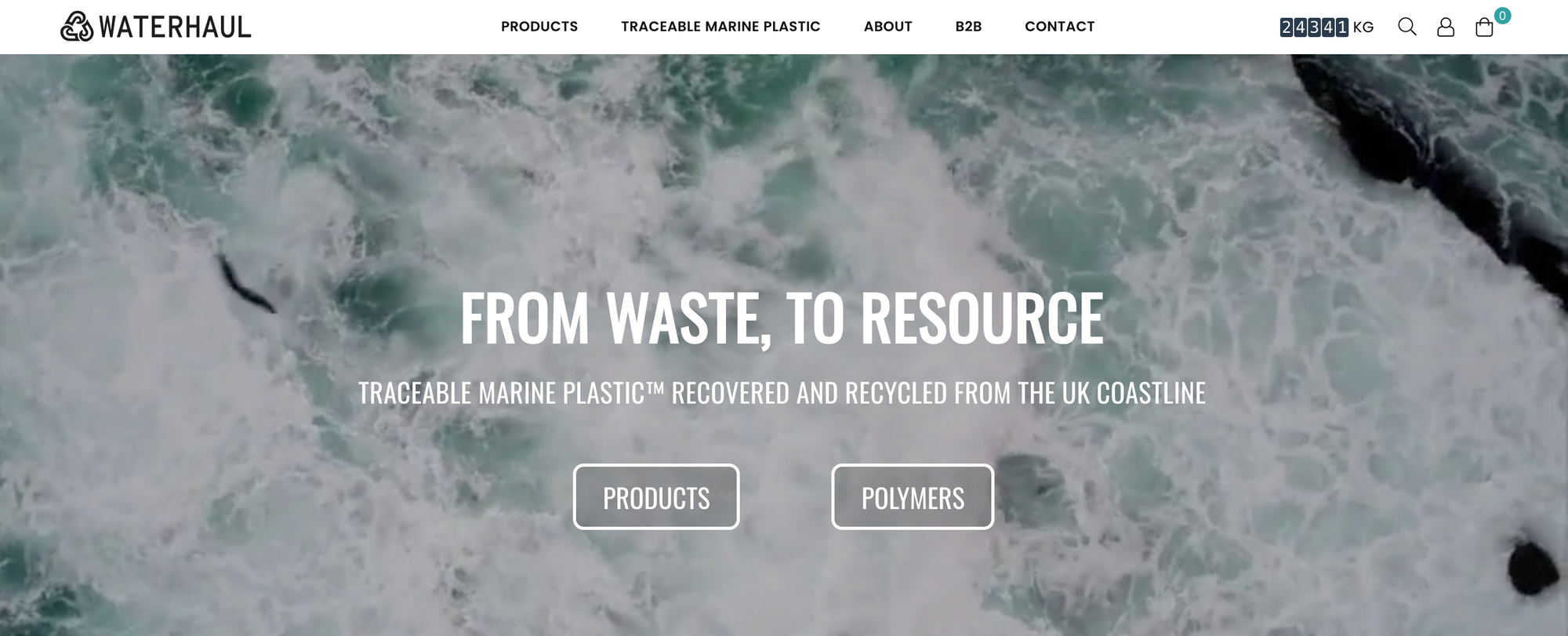
Waterhaul recycles discarded fishing gear—some of the deadliest marine waste—into sunglasses, knives, and tools that raise awareness and reduce plastic in the ocean.
What They Do:
- Transform ghost nets into durable products
- Partner with clean-up crews and divers
- Promote circular economy for marine plastics
Brim Explorer
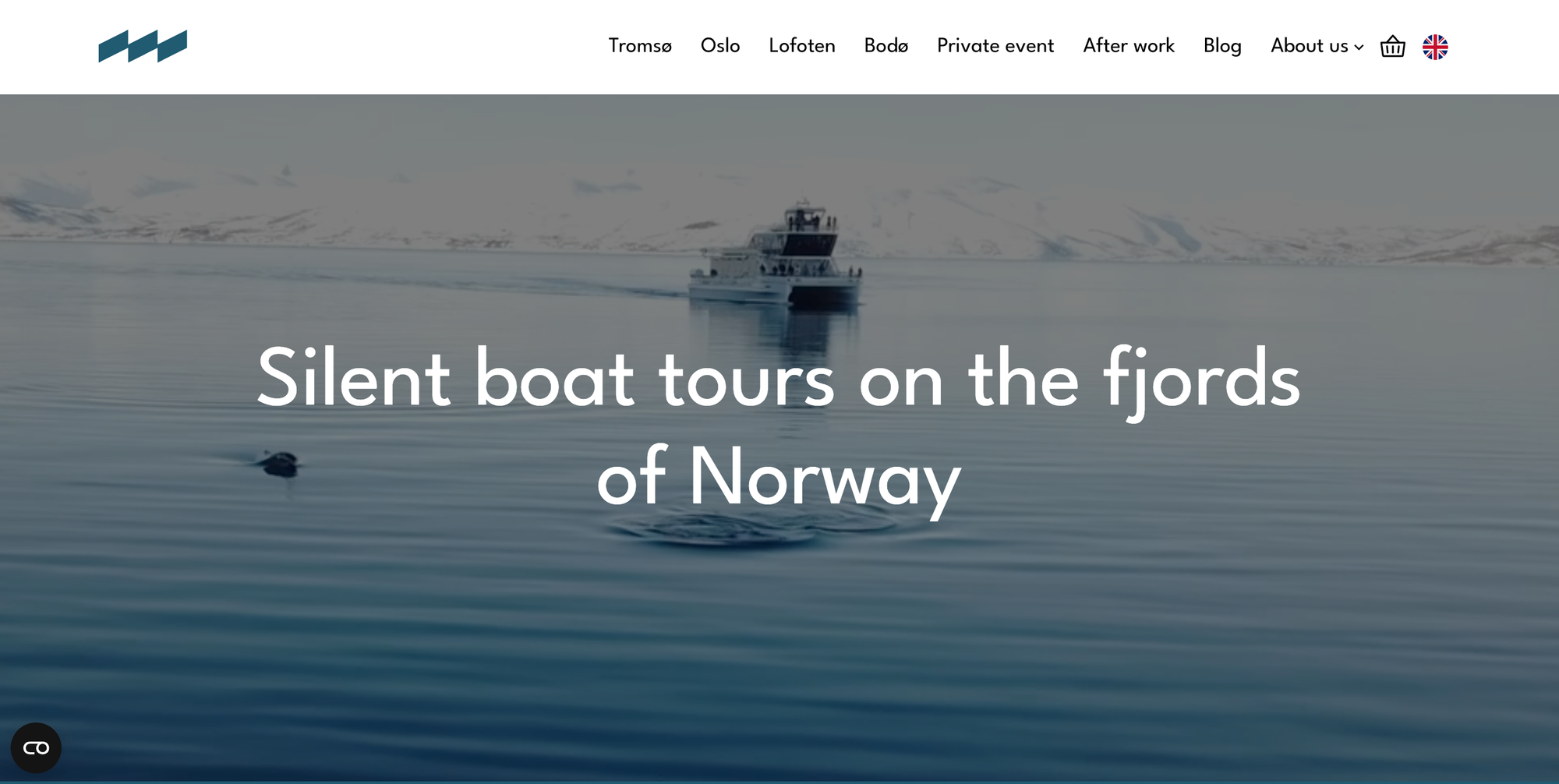
This Norwegian startup builds electric-powered, silent catamarans for eco-tourism. Their vessels offer zero-emission travel experiences in fragile marine environments.
What They Do:
- Operate electric boats for Arctic and fjord tours
- Eliminate engine noise and fuel emissions
- Offer educational experiences on marine conservation
ARC Marine
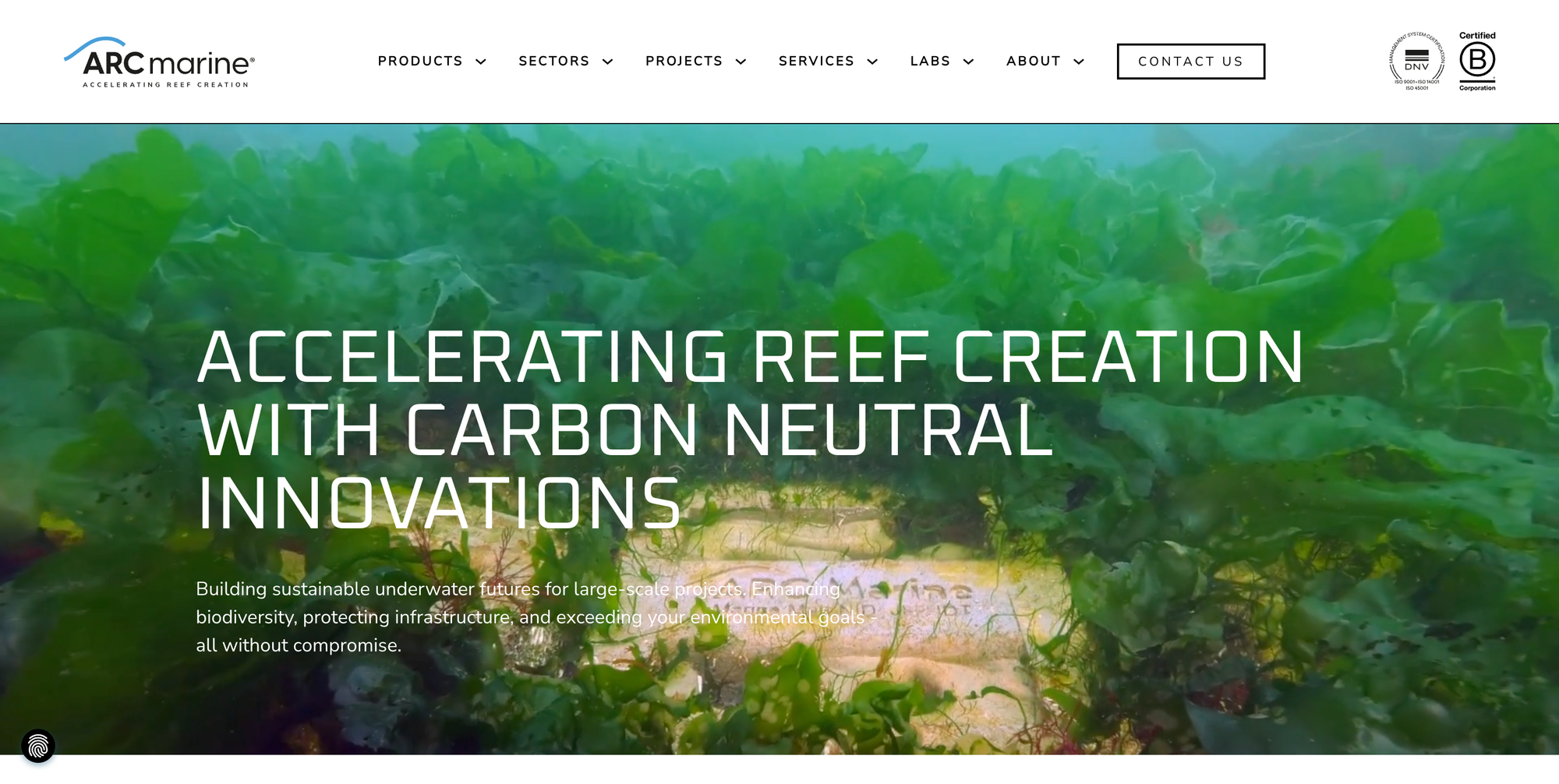
ARC Marine builds eco-engineered reef cubes that protect coastlines and restore biodiversity. Their modular reef systems are carbon-neutral and compatible with marine infrastructure.
What They Do:
- Create artificial reefs to regenerate marine life
- Build coastal defenses that enhance habitats
- Use sustainable construction materials
Eco Wave Power
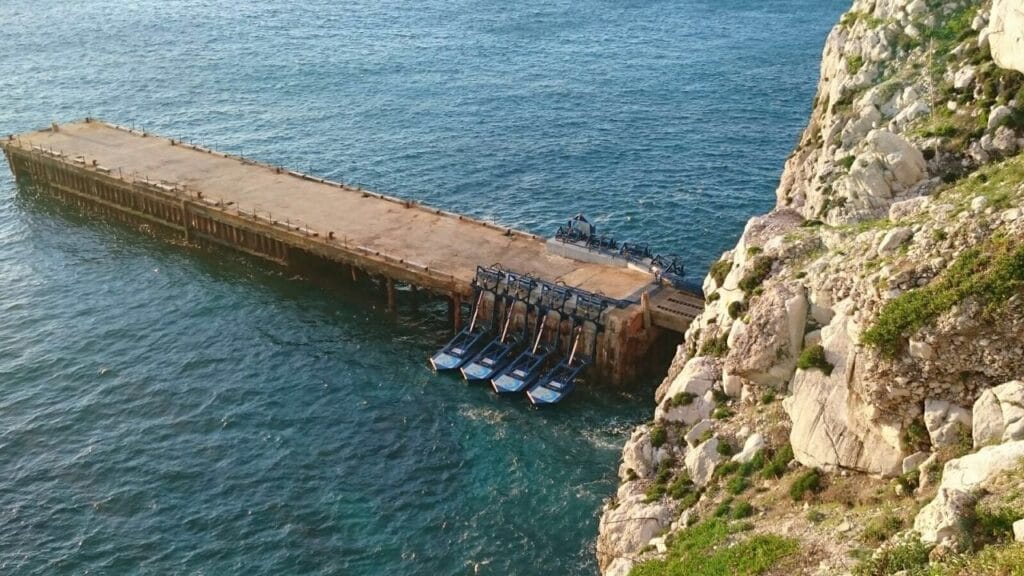
Eco Wave Power is harnessing the untapped power of ocean waves to produce clean electricity. Unlike offshore systems, their wave energy converters are attached to existing man-made structures—making them easy to install, maintain, and scale in coastal cities around the world.
What They Do:
- Convert wave motion into onshore renewable electricity
- Use breakwaters, piers, and jetties for infrastructure
- Offer a predictable, low-cost source of ocean energy
Listen to our interview with founder of Eco Wave Power.
Origin by Ocean
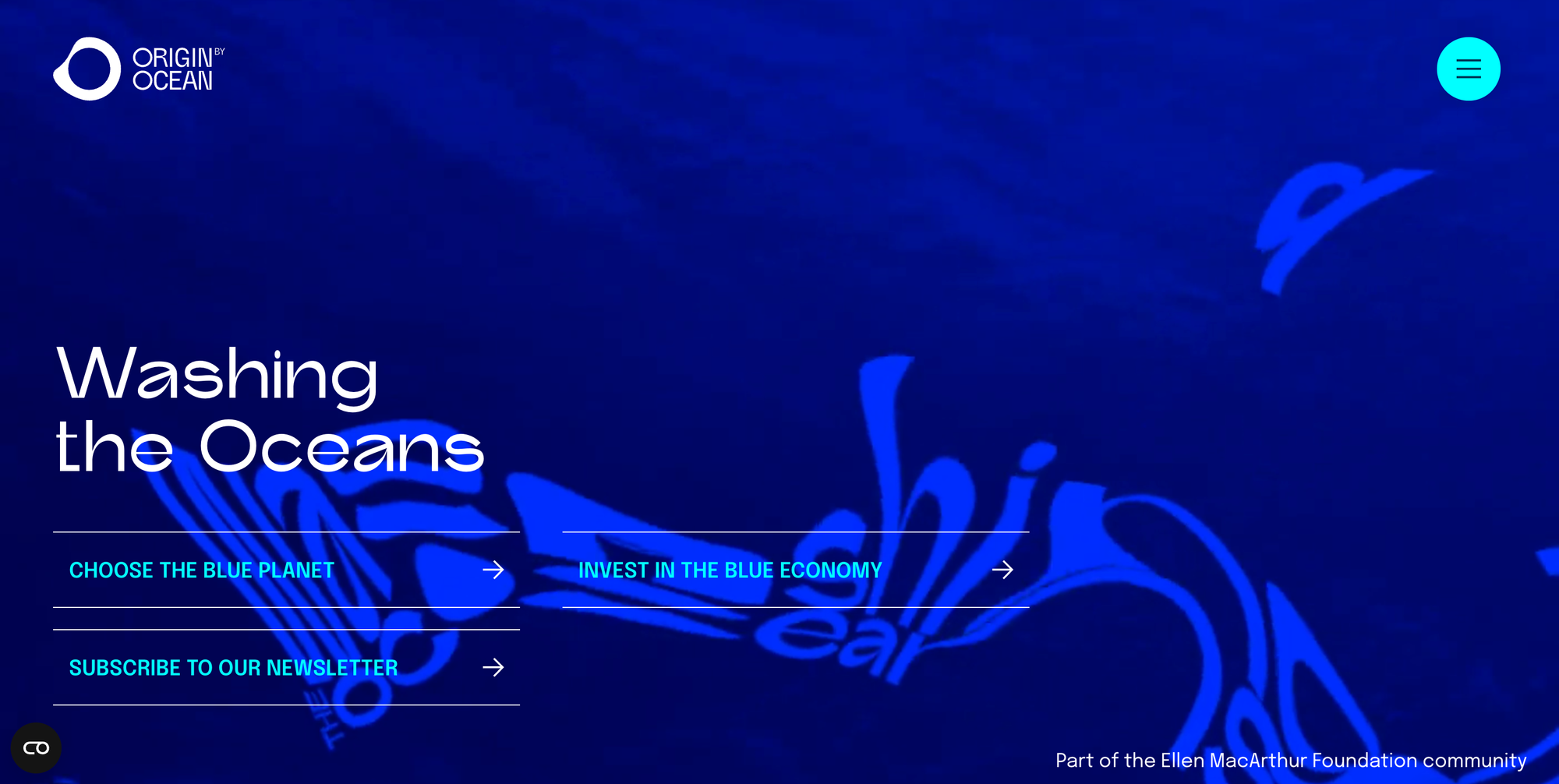
Origin by Ocean is turning the challenge of invasive seaweed into an opportunity for sustainable innovation. Based in Finland, the company transforms harmful algal blooms and invasive seaweed species into eco-friendly ingredients for use in cosmetics, food, textiles, and packaging—even offering alternatives to traditional plastics.
Their biorefinery process not only removes excess nutrients from marine ecosystems but also creates circular economy products that replace fossil-based materials.
What They Do:
- Harvest invasive seaweed to restore marine ecosystems
- Create bio-based ingredients for consumer goods
- Replace microplastics and fossil-based materials in everyday products
Planblue
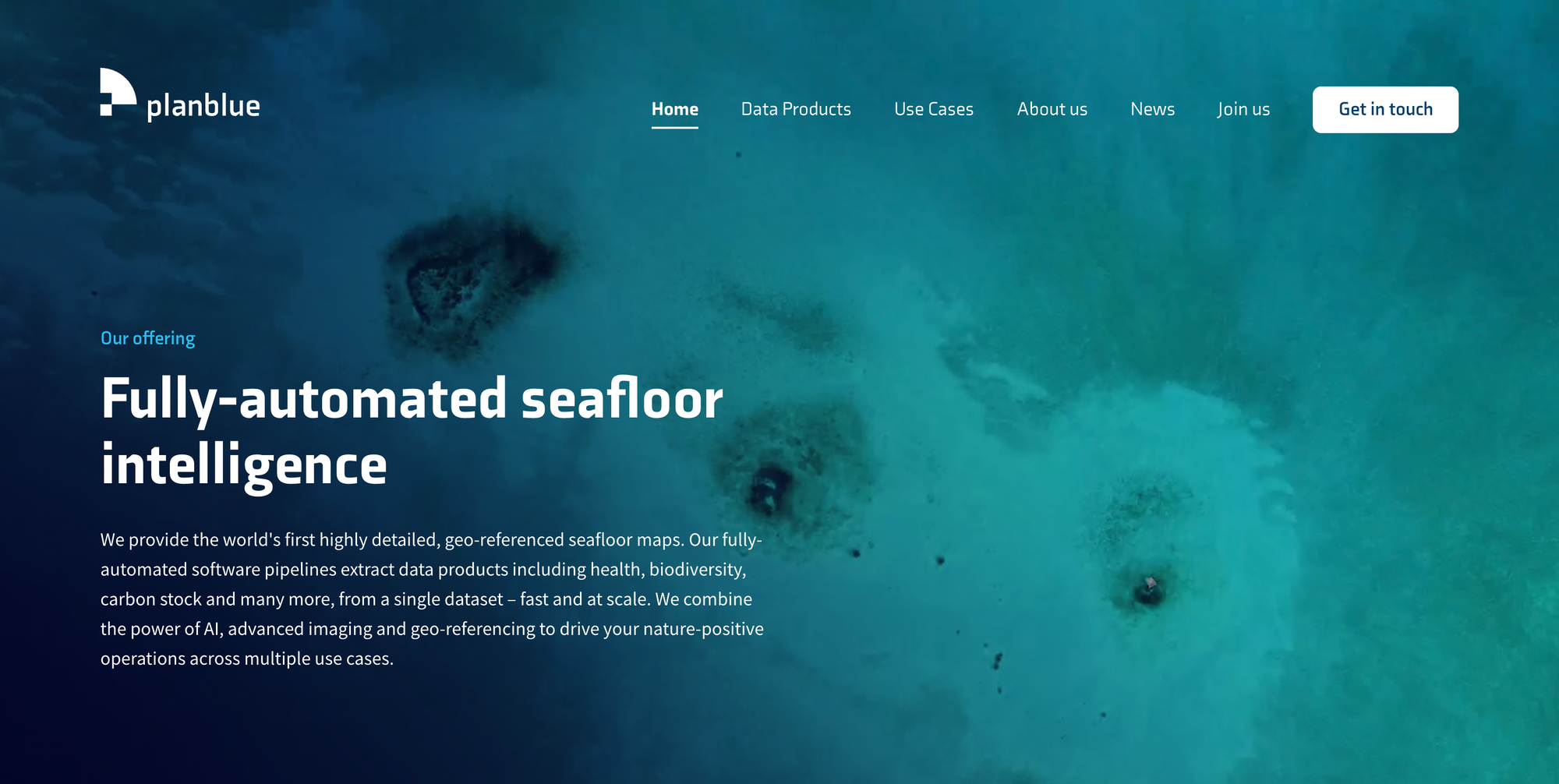
Planblue is revolutionizing how we monitor the ocean floor through advanced underwater mapping and AI-powered analytics. Their technology enables high-resolution visual and spectral data collection of ecosystems like coral reefs, seagrass meadows, and coastal habitats—all critical to climate resilience and biodiversity.
By turning the seabed into a “Google Maps for the ocean,” Planblue helps researchers, governments, and restoration groups make smarter, data-driven decisions for ecosystem protection and regeneration.
What They Do:
- Develop diver-operated and autonomous underwater mapping tech
- Use AI to analyze ocean health indicators in real time
- Support restoration projects with detailed ecological assessments
Ocean Oasis
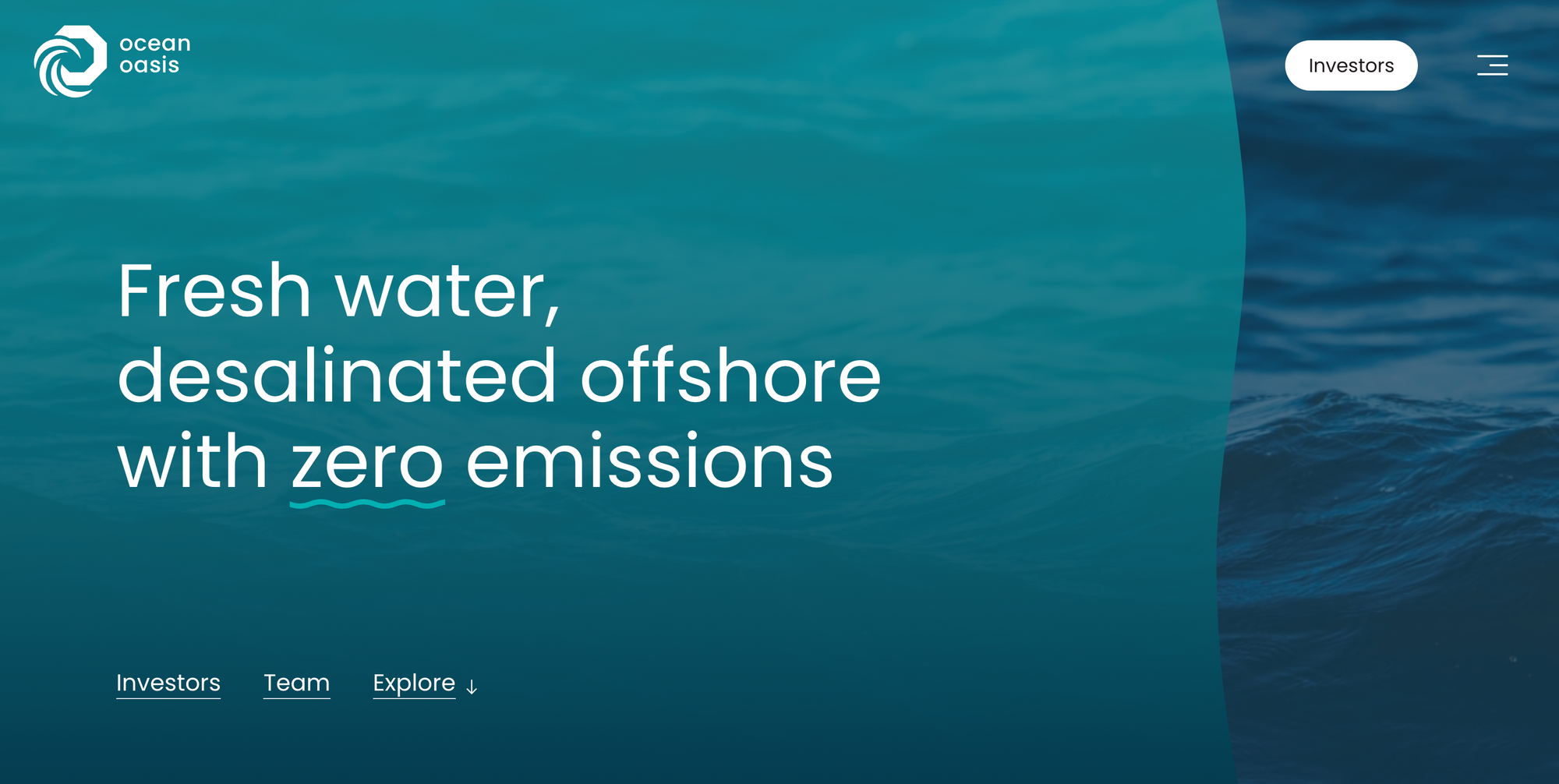
Ocean Oasis is redefining access to freshwater by harnessing the power of ocean waves. Based in Norway, the company has developed an innovative wave-powered desalination platform that creates clean drinking water without relying on external energy sources or chemicals—making it ideal for coastal and island communities facing water scarcity.
Their system floats offshore, driven entirely by the ocean’s motion, and provides a decentralized, scalable solution for sustainable water access.
What They Do:
- Develop wave-powered desalination platforms
- Produce freshwater offshore using only wave energy
- Support climate-resilient water infrastructure for coastal regions
Seabound
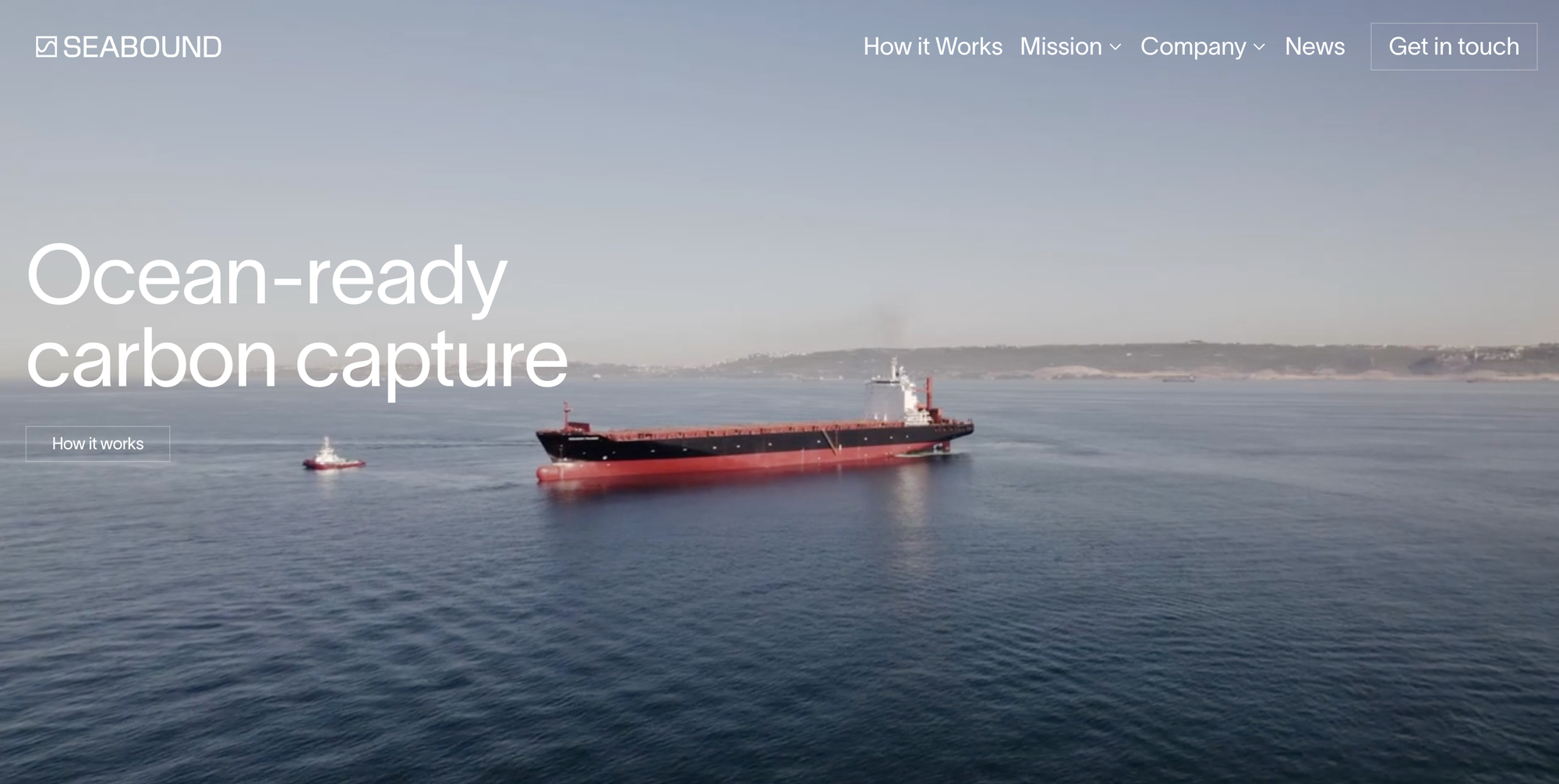
Seabound is tackling one of the hardest sectors to decarbonize—global shipping—by developing compact carbon capture units for cargo ships. These onboard systems trap up to 95% of a ship’s CO₂ emissions, turning harmful exhaust into solid mineral form that can be offloaded and reused or stored.
With shipping responsible for nearly 3% of global greenhouse gas emissions, Seabound’s solution offers a scalable and retrofittable path toward decarbonizing fleets without overhauling engines or fuel supply chains.
What They Do:
- Develop carbon capture systems for commercial vessels
- Convert CO₂ emissions into mineralized solids onboard
- Help fleets meet IMO decarbonization targets without new fuel infrastructure
The Ocean Cleanup
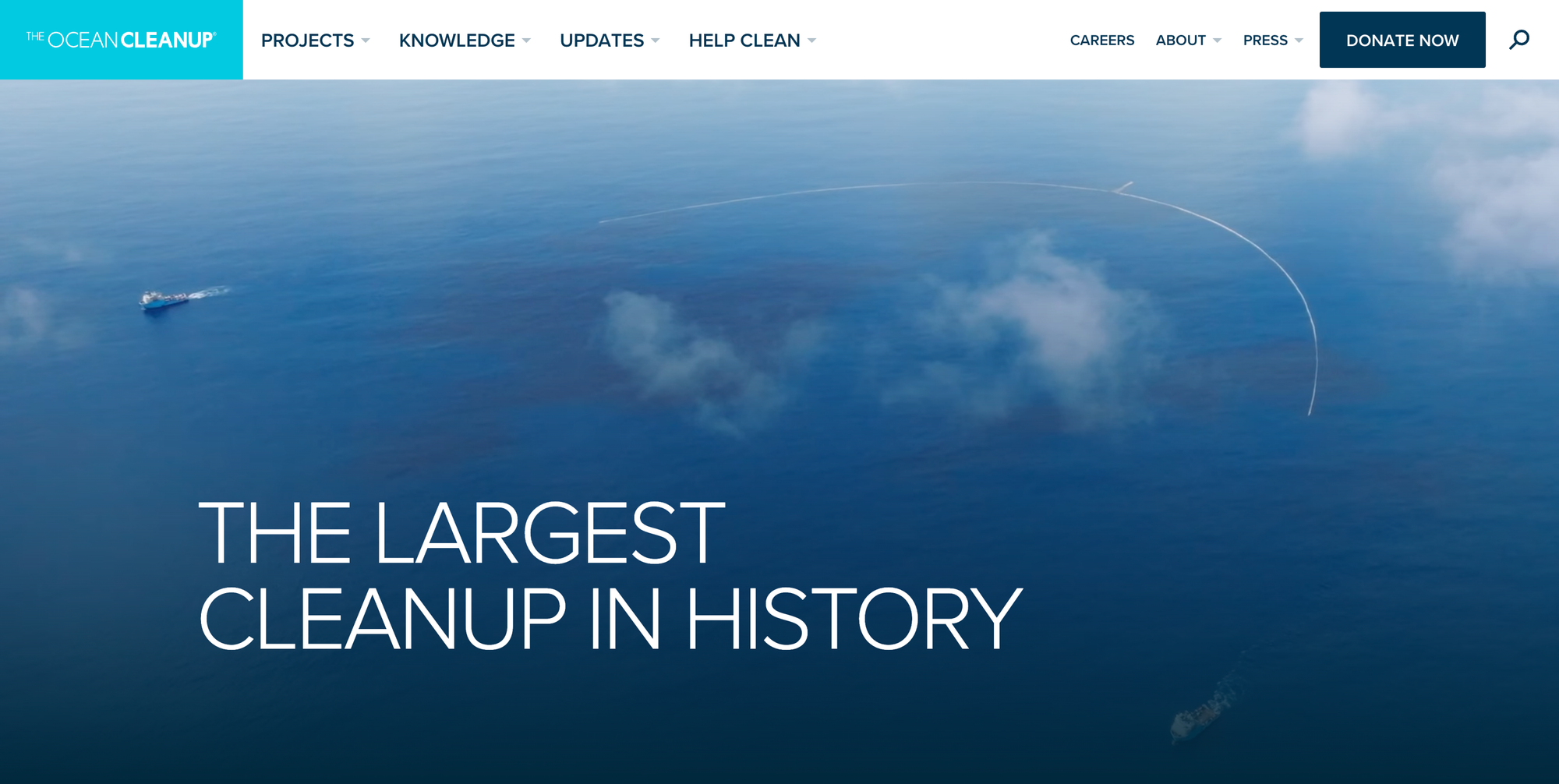
The Ocean Cleanup is a nonprofit developing cutting-edge technologies to remove plastic from oceans and intercept it in rivers before it flows out to sea. Their floating systems are already making a measurable impact on the Great Pacific Garbage Patch.
What They Do:
- Deploy floating barriers to capture ocean plastic
- Operate Interceptor™ vessels for river waste collection
- Target cleanup of 1,000 of the world’s most polluted rivers







